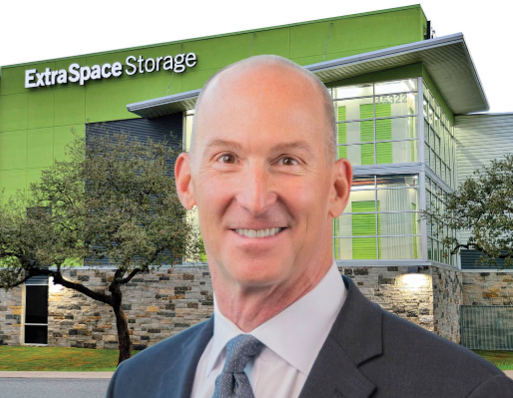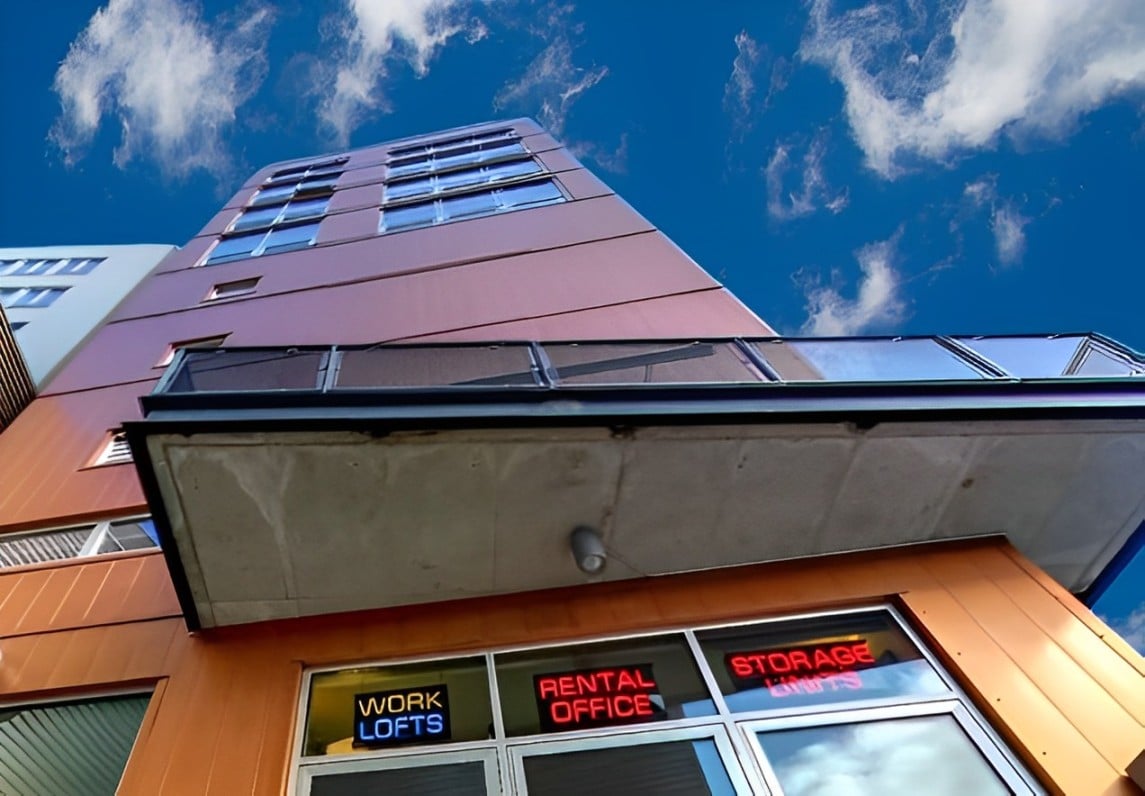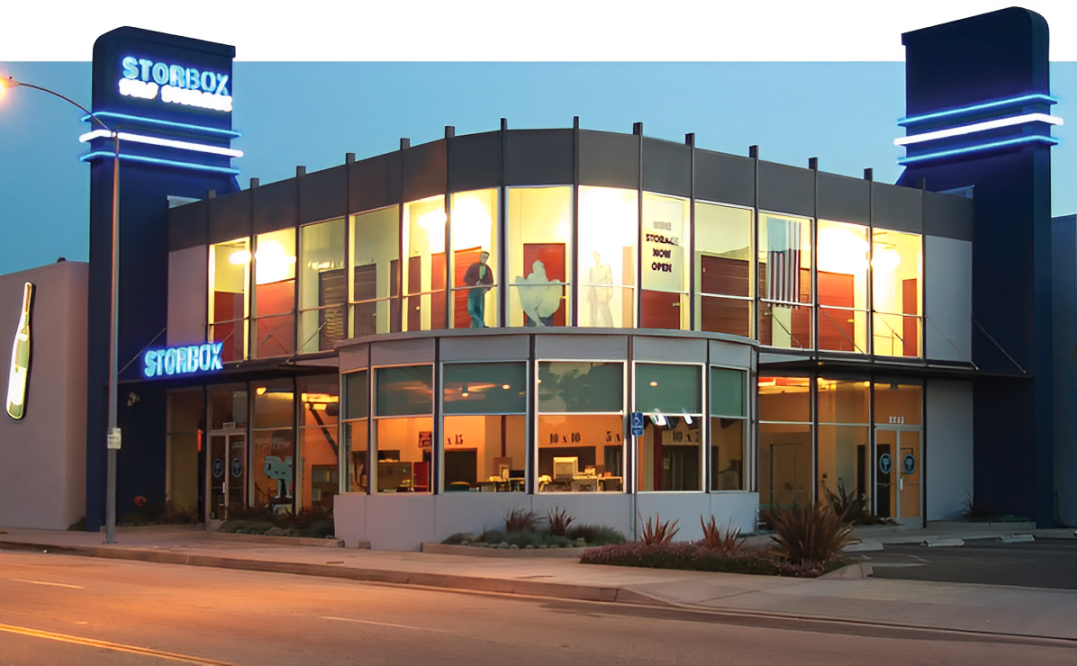2020 Facility Of The Year Renovation Winner: National Storage Centers – Bloomfield East
The year is 1984. Macintosh aired its iconic “1984” ad, “Purple Rain” is a splash at the box office, and a new mini-storage facility in Pontiac, Mich., is built. Like many first-generation facilities, it fits the standards of the day.
Fast forward to 2019: The facility, which is still in the same family as when it was built, is also much the same as it was in 1984, with few updates and neglected capital improvements.
Pogoda Companies, who owns more self-storage facilities in Michigan than any other company, took notice. “We saw a real opportunity to renovate a dilapidated, largely vacant facility into a like-new property in order to lease up and provide the best service to our tenants,” says Adam Pogoda, developer of the project and director of acquisitions for Pogoda Companies.
After acquiring the property and investing $1 million, the neglected property bloomed into a modern, state-of-the-art facility and was rebranded as National Storage Centers – Bloomfield East. Although the property is technically located in Pontiac, it compliments their other Bloomfield store.
Acquisitions Finesse
Pogoda recalls his company learned of the property at 800 Martin Luther King Jr. Blvd. in Pontiac, Mich., in 2018 through their many contacts throughout the state. “The property was being ran by the son of the original builder,” says Pogoda. “He cared a lot about the property, but had ultimately let it go; it needed a lot of capital improvements.”
Pogoda had his work cut out for him in determining if the property could turn a profit. The first and biggest challenge was determining what was going on from paper ledgers. “Everything was still on paper; nothing was on a computer, and the facility didn’t even take credit cards,” he says. “We had to create everything from scratch and figure out the profit and loss. All we had were bank records. It was a very different due diligence process.”
One thing Pogoda did know was that the property was only about 39 percent leased. It has 353 units with 43,156 square foot of rentable space. However, it seemed the property could be a triple home run. It is located in a growing area, just a quarter mile from a large mortgage processing facility that is hiring hundreds of new employees. It is also within a short distance of a former auto manufacturing plant that is being transformed into a technology center. Additionally, the property is in close proximity to Bloomfield, a wealthy area near Detroit. Pogoda knew after completing the proforma that the facility could do better with the proper upgrades and branding.
Pogoda spent many days sitting with the owner in the cramped 8-by-10 office, which appeared to have original, yellow-striped 1980s wallpaper and furniture, complete with the recliner the owner sat in behind the desk.
“The owner was focused on selling it to someone who would do the property right,” says Pogoda. Adam’s father, Maurice Pogoda, founded Pogoda Companies in 1987, just three years after Bloomfield Mini Storage was built. Pogoda Companies is one of the Midwest’s largest self-storage operators with approximately 3.5 million square feet under ownership or management. The company is consistently ranked one of the top 25 self-storage operators in the country.
Still, Pogoda Companies is a family-owned and operated business, which likely helped seal the deal on purchasing Bloomfield Mini Storage from the son of the original owner.
Although Adam Pogoda had a lot of experience in the industry, this was the first deal he was tasked with closing himself. “It was a very small deal, but in January of 2019, it was my first,” he says. “It was a chance to get my feet wet; it was exciting and daunting at the same time.”
Pogoda notes that the company was in the process of refinancing four other properties at the time, and the bank agreed to roll in the Bloomfield deal.
By the end of January, initial plans were in place and everything was set to go.
The Best Laid Plans
By February 2019, all of the doors on the existing units had been replaced. “This is typically done last, but we wanted to immediately send a message to the customers that there were new owners, and we were going to treat the project right,” says Pogoda.
At the same time, the company was dealing with the biggest challenge of the project, convincing the city that an old median in the middle of the busy road wasn’t necessary. The median didn’t allow customers to make a left turn into the property, forcing them to either make an illegal U-turn or head down the road for an unimaginable half mile to turn around.
Jim Jakubus, construction manager for the Pogoda Companies, was tasked with working with the city to see if the barrier, along with a wooden sound barrier wall that prevented a view of the property, could be removed.
“Nowak & Fraus Engineers drew up a feasibility report to see if these barriers could be removed,” says Jakubus. “The city eventually said we could do it if we provided a left-turn lane, new lighting, re-ran sewer and electric lines under the boulevard, and did the paving.”
Once Pogoda paid a bond to the city, which was refundable upon completion of the project, and received the permit, they carefully selected a group of subcontractors that included Rod Porter Construction and PK Contracting. This project began in earnest in May. The first project was to provide barriers re-directing traffic and then demo the 351-foot concrete barrier that prevented customers from making a left turn into the property.
“The biggest task of the project was relocating the light pole bases,” says Jakubus. “We had to do a difficult boring method and, during the process, came across obstructions. We couldn’t put in the light pole bases as designed.”
The city then had to be called to come out and relocate the light poles, so as not to hit the existing water lines. “We also had to wait for LED light pole bases, but it was during the summer months, so it worked out pretty well,” says Jakubus.
Fencing and overgrown trees also completely obstructed view of the property from the main road. Once those visual barriers were removed, potential customers could see the property as they drive by, which is still a critical element in self-storage marketing.
More Unexpected Obstacles
“In construction projects, there’s a right way to do things and a wrong way,” says Pogoda. “When putting new asphalt on, the previous owner just kept putting extra layers on.”
Pogoda knew they were going to have to demo out the old asphalt and completely replace it, which revealed another surprise. “It’s the old adage of ‘you don’t know what’s behind the walls until you start doing the demo work,’” says Pogoda, who discovered the foundation of the building support columns were crumbling and needed to be completely rebuilt.
“Fortunately, we already had a company on site that had spare time and could do it for us,” says Pogoda. “They were able to finish the asphalt project. The whole thing was a learning process.”
One more challenge presented itself when plans for the new gate were nixed by the fire department. “We like to have the gate by the office and the fire department made it an ordeal, saying we needed 24 foot and we only had 20 foot,” says Pogoda. “We either had to do it or chop the gate and make a separate rolling gate. We got that solved and now have state-of-the-art gates that look amazing.”
In the meantime, new, bright-white siding and blue roofs to match the doors were added to the storage buildings. These brighter colors replaced the beige and brown color combination that is more reminiscent of the late 20th century. Moreover, the cramped “used car salesman” type office was transformed into a 600-square-foot, modern office and retail store.
One surprising remnant of the original property Pogoda Companies kept, and likes to keep on older properties, is the manager quarters. Many first- and sometimes second-generation facilities built manager apartments as it was standard to hire couples, one of whom managed the maintenance of the property while the other managed the office and rentals. A main perk of the job was that companies provided living quarters.
When the industry began hiring a more professional, sales-driven force, most newer facilities were constructed without this employment benefit. “It’s an old school thing to do, but we feel the apartments are a real carrot for our managers,” says Pogoda. “We have a fantastic manager we convinced to move here, and she has a free two-bedroom apartment. Her mother lives with her and she is now working at the property as the assistant manager.”
The apartment also received a complete makeover, inside and out. “The owner’s son lived there, and it looked like what you’d expect of a single college student’s apartment,” laughs Pogoda.
The narrow drive aisles meant construction teams couldn’t have more than one vendor with heavy equipment on site at any given time; the road project also held up completion, running the project over time for about a month. “We had to use more manual labor instead of heavy equipment,” says Chriss Michalopoulos, senior regional manager for Pogoda Companies, who oversaw construction and operations at the facility.
Despite the renovation’s many triumphs, the unexpected columns ate up the contingency budget and the road project brought construction about $130,000 over budget. “We had some things that did cost less than projected, so we finished about even,” says Pogoda.
Modern Lease-Up
In addition to the above renovations, Pogoda Companies completely put the facility online with SiteLink management software. As well, the property was updated with security equipment, touchless digital gate pad access, and attractive, low maintenance landscaping. New signage and visibility to the road also offer more drive-by rental opportunities.
By August 2019, National Storage Centers – Bloomfield East established itself a brand-new self-storage facility in the neighborhood and added to the economic development of the area.
Pogoda established the first marketing priority by installing new doors for existing tenants. They tried to keep the existing customers in mind when raising rents to reflect the upgrades to the property. “We didn’t raise rents until the project was completely done,” says Pogoda. “It’s a very tough thing to do, because we didn’t want to lose any existing customers. We wanted to provide proof of the value-added services with the lighting and doors.”
There was one customer who had been at the property since its opening and had never had his rent raised. “He wasn’t happy with the rent increase, but we showed him he is still getting a good value,” says Pogoda, who adds the existing customers can also take advantage of the new insurance offering as well as the company’s referral program.
National Storage Centers established Tuesday through Saturday hours, giving the manager Sundays and Mondays off. “It’s something we’ve done with five other locations,” says Michalopoulos. “The decision was based on market and size of the facilities, and we utilized this same philosophy and have been quite successful.”
The company scheduled a grand opening, putting up flags, signs, and a tent with food. The manager also did some old school marketing, hitting the streets to speak with apartment managers and the HR departments of local hospitals, the large mortgage company, and the tech center.
Developing the website and online rental program was key, especially during the pandemic. “We actually saw an uptick in rentals during the lockdowns,” Michalopoulos says.
Surprising Results
National Storage Centers – Bloomfield East is currently 85 percent leased. Pogoda says there is a building with 60 5-by-12 units that is only 30 percent leased. “That is not a great unit type,” says Pogoda. “We’d like to demo that building; we would be at 95 percent leased without those units.”
The company is also seeking a 330-foot-by-50-foot piece of property that sits between the facility and an apartment building, hoping to add more storage. However, an easement issue is holding up that deal.
Michalopoulos admits when he looked at the deal at the beginning of the project, he wasn’t convinced. “It was quite the challenge, and I personally had my doubts,” he says. “But it was quite the completion, and I’ve been pleasantly surprised.”
And Pogoda couldn’t be prouder. He is very pleased and feels vindicated by the results of his first development project. “Looking at the management summary, we took gross potential revenue from $12,500 monthly to $48,000,” says Pogoda. “I’m also very proud of the Facility of the Year award for Renovation.”
More Content
Popular Posts
The REITs new pricing strategy – lowering...
The self storage industry is in a precarious...
With the approval of both companies’...
Recent Posts
Owning or managing a self-storage facility...
Helen Keller is quoted as saying, “Alone we...
It’s often been said that “opportunity is...
There’s a saying in Florida that there are...
The landscape of the self-storage industry...
Last January, the prime interest rate was...
Many of us are seeking ways to bring in new...














